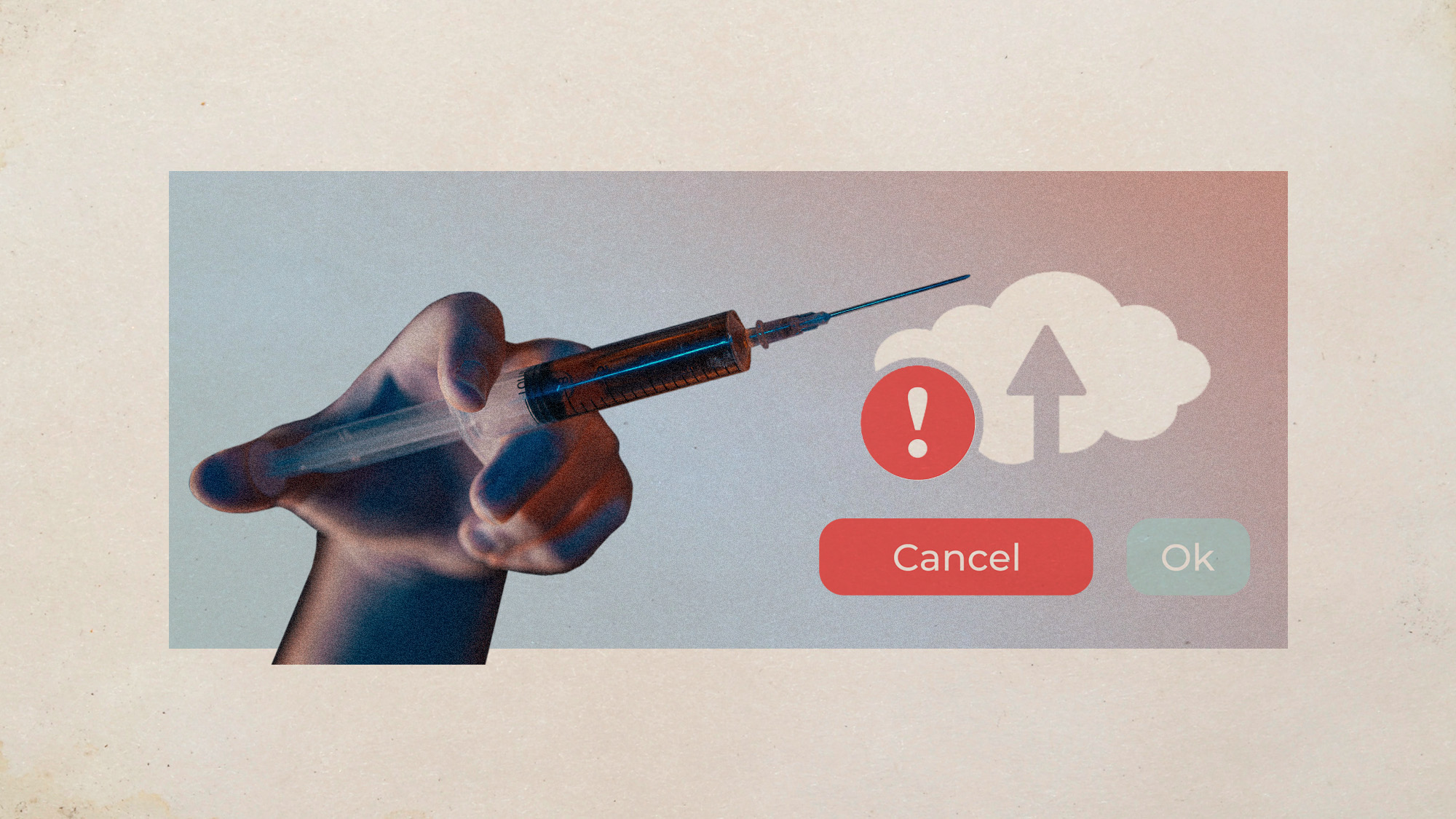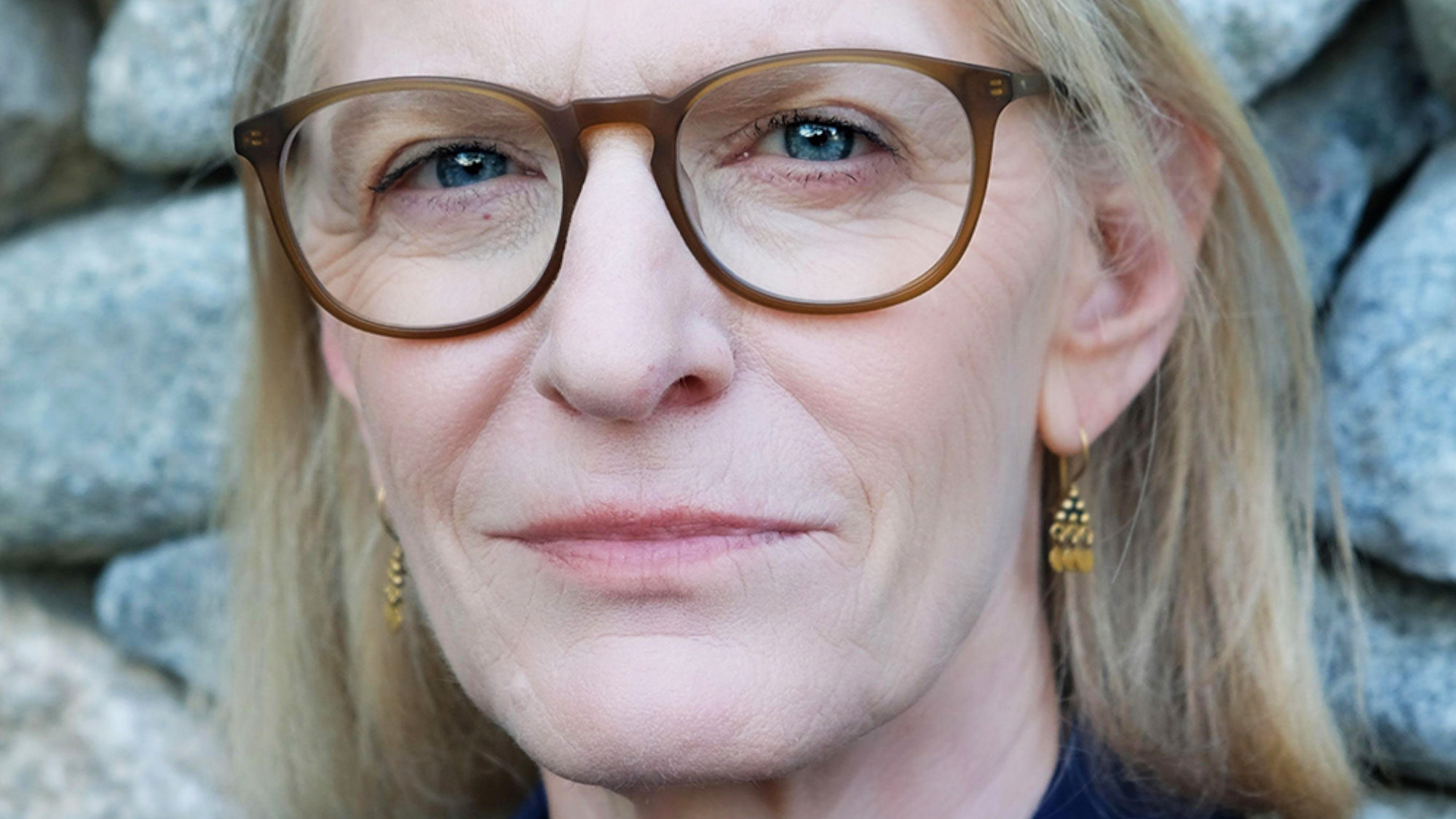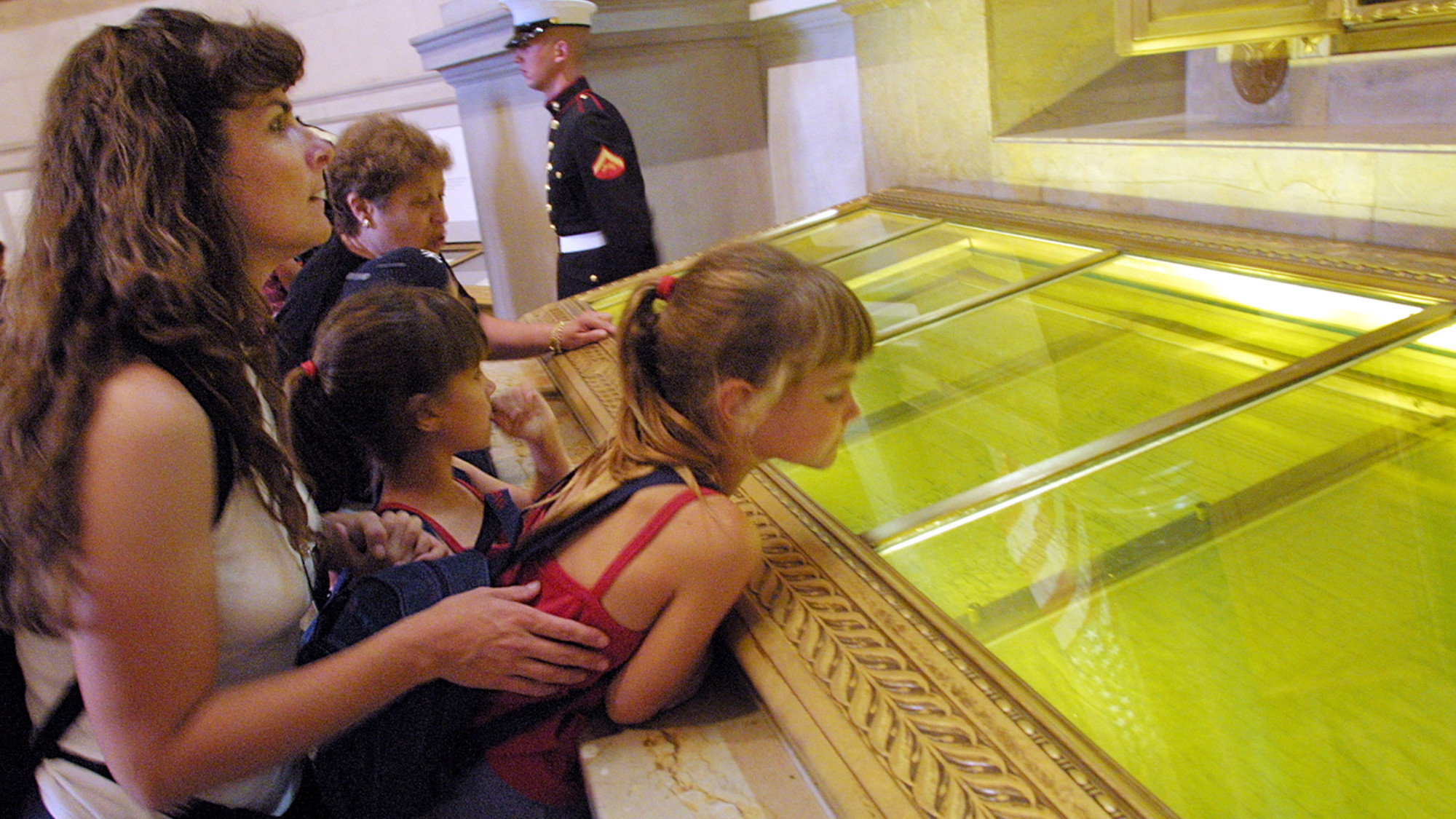Honeymoons, babymoons, and the surprising origin story of -moon words
When the word was coined, honeymoon involved neither honey nor tropical getaways


Will and Kate are going on a babymoon.
I have no recollection of seeing this word babymoon previously. And yet the meaning was immediately clear to me: They're going on a vacation before they have the baby — their last vacation without offspring to worry about for, say, 18 years.
Is this going to be the start of a trend of –moon words? After all, we already have loads of –cations: Is your vacation a staycation? Perhaps a nearcation? Just a daycation? Or is it a zen-cation, a pray-cation, a spa-cation… Or maybe it's just a fake-cation! We hope it's not really a work-cation.
The Week
Escape your echo chamber. Get the facts behind the news, plus analysis from multiple perspectives.

Sign up for The Week's Free Newsletters
From our morning news briefing to a weekly Good News Newsletter, get the best of The Week delivered directly to your inbox.
From our morning news briefing to a weekly Good News Newsletter, get the best of The Week delivered directly to your inbox.
We're a very travel- and leisure-oriented society. And so I can see a similar trend possible with –moon words. It's something else you can go on! Is your honeymoon just a short one? Must be a mini-moon! Or are you bringing parents, siblings, or perhaps children? Then it's a family-moon! And, yes, if it's your last romantic getaway before children eat your life, it must be a babymoon.
An important thing to notice with the –moon words so far is that they all maintain a similarity of sound. The vowel sound before moon is always [i], and the words have the same — or close enough — rhythm.
What other –moons await? Winning a lottery isn't common enough to give us a moneymoon for a trip taken with the winnings. We can leave it up to travel promoters to come up with the usual brutish Frankensteinings such as ski-moon and spa-moon. And we know we can rely on Urban Dictionary to give us hornymoon for when couples are reunited after a time apart and spend much of the first few days in the sack. (It seems to me it would also be a nice term for a "wicked weekend" by an unwed pair.)
All of these coinages trade on some similarity to the original meaning of honeymoon: romance, travel, new starts. They don't all trade on the same aspects. Which aspects they go with naturally has something to do with what we need or want a word for. It seems to be a thing now for people to get in a last trip before spawning, hence babymoon. But what if it were more of a thing for parents of a new infant to take some bonding time together with their progeny, like a honeymoon but now with the child?
A free daily email with the biggest news stories of the day – and the best features from TheWeek.com
In fact, that's the original meaning of babymoon. It appears to have been coined by Sheila Kitzinger in her 1996 book The Year after Childbirth. The idea is not to take a trip with the child — I can't think that that would be a most excellent idea anyway — but just to spend it at home without the distraction of work, parents, and baby all together.
That's actually closer to the original use of honeymoon, too. Your honeymoon was not necessarily a trip you took right after getting married; rather, it was that period of delight — all sweet (and perhaps sticky) like honey — that followed in the time of a moon's cycle after the wedding, and by implication, would wane about as surely.
It is this sense that's really at play when you talk about the honeymoon period in a new job: the first flush of excitement before the shine starts to wear off. It just happens that we have developed a tradition of newlyweds going off to get away from everyone else while they're in their first full flush — not just to spare them from everyone else, but also to spare everyone else from them.
Everything new and shiny has a period of enthusiasm before the tarnish starts to set in. Even "Call Me Maybe" had its Carlymoon; new word-coining fads certainly will. Some of these coinage patterns are quite durable — there seems to be an inexhaustible supply of –gate scandals and different things to be an –aholic of — but sometimes their honeymoon is quite short. I'm frankly sick of –cation words, partly because I feel like they're mostly marketing ideas being forced on me. And really, –moon words are also quite susceptible to that. I'm not one much given to word-hates — I love new fun things in language — but I'm wondering if I won't be over the –moon rather soon. How about you?
James Harbeck is a professional word taster and sentence sommelier (an editor trained in linguistics). He is the author of the blog Sesquiotica and the book Songs of Love and Grammar.
-
 Bluetoothing: the phenomenon driving HIV spike in Fiji
Bluetoothing: the phenomenon driving HIV spike in FijiUnder the Radar ‘Blood-swapping’ between drug users fuelling growing health crisis on Pacific island
-
 Marisa Silver’s 6 favorite books that capture a lifetime
Marisa Silver’s 6 favorite books that capture a lifetimeFeature The author recommends works by John Williams, Ian McEwan, and more
-
 Book reviews: ‘We the People: A History of the U.S. Constitution’ and ‘Will There Ever Be Another You’
Book reviews: ‘We the People: A History of the U.S. Constitution’ and ‘Will There Ever Be Another You’Feature The many attempts to amend the U.S. Constitution and Patricia Lockwood’s struggle with long Covid
-
 In the future, will the English language be full of accented characters?
In the future, will the English language be full of accented characters?The Explainer They may look funny, but they're probably here to stay
-
 10 signature foods with borrowed names
10 signature foods with borrowed namesThe Explainer Tempura, tajine, tzatziki, and other dishes whose names aren't from the cultures that made them famous
-
 There's a perfect German word for America's perpetually enraged culture
There's a perfect German word for America's perpetually enraged cultureThe Explainer We've become addicted to conflict, and it's only getting worse
-
 The death of sacred speech
The death of sacred speechThe Explainer Sacred words and moral terms are vanishing in the English-speaking world. Here’s why it matters.
-
 The delicate art of using linguistics to identify an anonymous author
The delicate art of using linguistics to identify an anonymous authorThe Explainer The words we choose — and how we use them — can be powerful clues
-
 Dashes and hyphens: A comprehensive guide
Dashes and hyphens: A comprehensive guideThe Explainer Everything you wanted to know about dashes but were afraid to ask
-
 A brief history of Canadian-American relations
A brief history of Canadian-American relationsThe Explainer President Trump has opened a rift with one of America's closest allies. But things have been worse.
-
 The new rules of CaPiTaLiZaTiOn
The new rules of CaPiTaLiZaTiOnThe Explainer The rules for capitalizing letters are totally arbitrary. So I wrote new rules.
